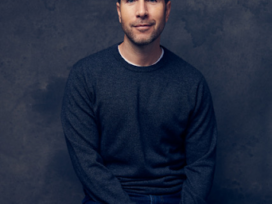Charity should come from the heart, not feed the ego
AIDS, PETA, gay rights and Kony 2012 are just a few of the causes to which celebrities are donating their time and money. Celebrities have shown that by employing their “star power”, they can lend a much-needed boost to causes while enhancing their own public images. Some are genuine in the work they do, respectfully supporting a cause.
While it is admirable to raise money for charities and relief organizations, some acts of charity come across as publicity stunts. It seems as though many celebrities are only sincere about using their vast resources if a camera is in the vicinity.
Celebrities naturally attract a high level of attention, thus creating an effective marketing tool. Most celebrities rapidly gain followers and fans on Facebook and Twitter because their fans want to receive updates on their lives, giving those celebrities plenty of opportunities to market a captive audience. Sometimes this is done so well that fans do not even realize it is part of an advertising campaign.
Lady Gaga, the reigning pop culture icon for the gay community, has taken center stage in the battle for gay rights. As a self-proclaimed “child of diversity,” she released “Born This Way,” a hit that became the fastest selling song on iTunes. The song expresses that everyone should practice self-acceptance, no matter how he or she was born.
Gaga is one of the few celebrities who are genuinely fighting for a cause. With more than 15 million followers on Twitter and 44 million Facebook fans, she is not the usual media manipulator; she publically admits to being bisexual and is a gay activist at heart.
Recently, a campaign advocating for a Ugandan Warlord to be brought to justice. The Kony 2012 movement began in March when the Invisible Children organization released a 30-minute video on YouTube that went viral. The video originally introduced twenty celebrities and public figures who supported this cause.
The celebrities, including Justin Bieber, Rihanna and P. Diddy, used their fame and hash tags on Twitter to make this cause known in a matter of hours. P. Diddy tweeted, “Dear Joseph Kony, I’m gonna help make you FAMOUS!!!! We will stop YOU! #StopKONY! All 6,000,000 of my followers RT NOW!!! Pls! [sic]”
Organizations that work with celebrities are often ecstatic for the extra publicity for the cause at hand. Having a big name celebrity tied to a cause, however, is not always a good thing. Relying on celebrities can be dangerous and can potentially harm the cause.
A celebrity can be a huge risk to the image of a charity or foundation, especially when there is an inconsistency in that figure’s popularity. Celebrities can also overshadow a cause, leaving viewers to remember the celebrity, not the cause.
Lindsay Lohan has been known to support numerous organizations, including PETA and Bid to Beat AIDS. Due to the bad publicity of her many legal troubles and court appearances, however, she casts an unflattering light on the charities. While it may be effective for an organization to have a famous face to bring attention to the cause, does the cause honestly want a face with such a bad reputation?
Celebrities are triumphant in bringing the issues they represent to a wider audience, even if they behave badly while doing so. Kirstie Alley was on the right track when she tweeted, “Celebrities have big mouths and big audiences.” “Celebrities have big mouths” because Hollywood has persuasive power over a majority of the world.
If one believes in a cause, the commitment one gives should be genuinely from the heart. A cause should not be supported in order to feed a million-dollar ego.





